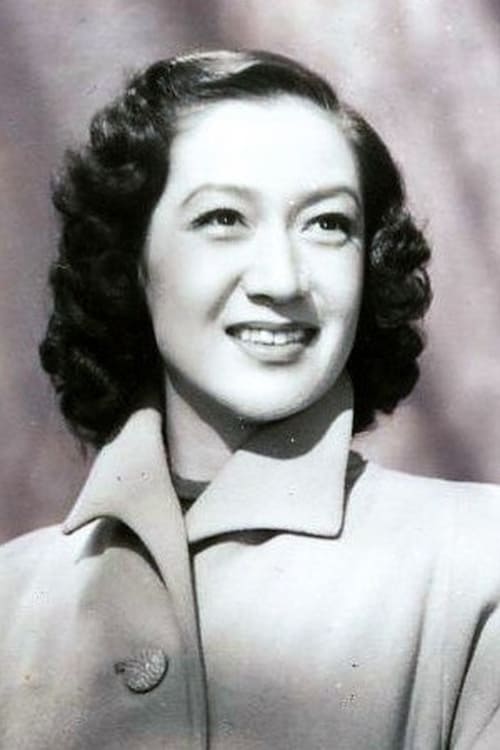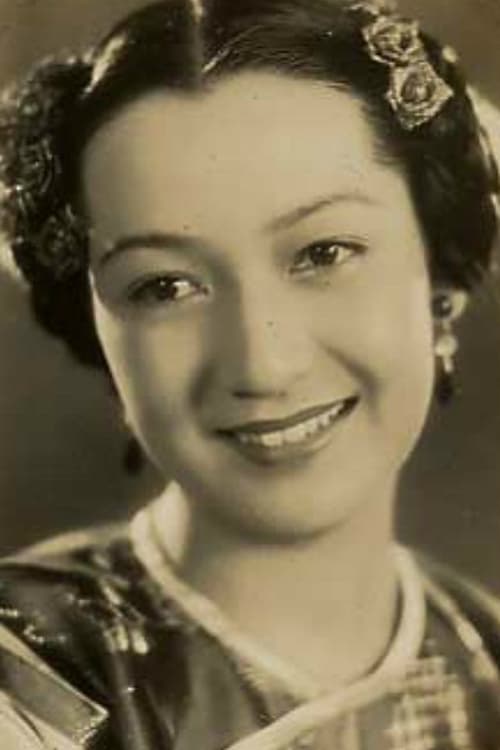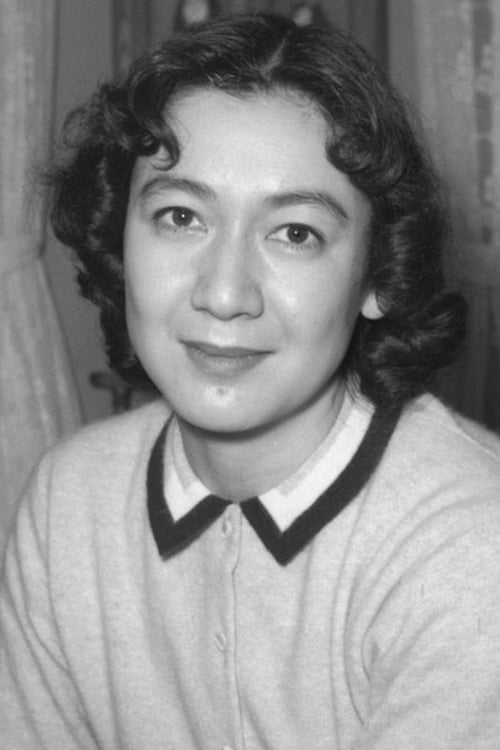
Setsuko Hara
Nacimiento : 1920-06-17, Yokohama, Kanagawa, Japan
Muerte : 2015-09-05
Historia
From Wikipedia, the free encyclopedia.
Setsuko Hara (June 17, 1920 – September 5, 2015) was a Japanese actress who appeared in six of Yasujirō Ozu's films, most notably as Noriko in the 'Noriko Trilogy': Late Spring (1949), Early Summer (1951) and Tokyo Story (1953). Her other films for Ozu were Tokyo Twilight (1957), Late Autumn (1960) and finally The End of Summer in 1961.
She was born Masae Aida in Yokohama, Kanagawa prefecture. She came to prominence as an actress at an early age, in the 1937 German-Japanese co-production Die Tochter des Samurai (Daughter of the Samurai), known in Japan as Atarashiki Tsuchi (The New Earth), directed by Arnold Fanck and Mansaku Itami.
She also starred in films by Akira Kurosawa, Mikio Naruse and other prominent directors.
She was called "the Eternal Virgin" in Japan and is a symbol of the golden era of Japanese cinema of the 1950s, although she is mostly unknown in the US. She suddenly quit acting in 1963 (the same year as Ozu's death), and had since led a secluded life in Kamakura, refusing all interviews and photographs. Her last major role was Riku, wife of Ōishi Yoshio, in the 1962 film, Chushingura. She was the inspiration for the protagonist of the 2001 movie Millennium Actress.
Description above from the Wikipedia article Setsuko Hara, licensed under CC-BY-SA, full list of contributors on Wikipedia.

Noriko Setsuko

Noriko Setsuko
The film reconstructs the life of Noriko by selecting scenes from Oz Yasujiro’s films featuring actor Hara Setsuko.

Self (archive footage)
A tribute to the legendary Japanese film director featuring the reflections of filmmakers Lindsay Anderson, Claire Denis, Hou Hsiao-hsien, Aki Kaurismäki, Stanley Kwan, Paul Schrader, and Wim Wenders
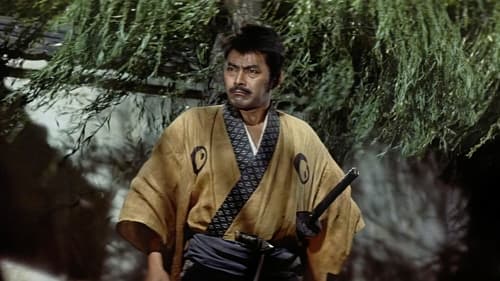
Riku Oishi
Esta impresionante historia épica ha sido a veces etiquetada como la versión japonesa de "Lo Que El Viento Se Llevó". Chusha Ichikawa personifica a un señor feudal poderoso y despiadado que lucha contra el virtuoso y joven noble, Yuzo Kayama. Ichikawa encuentra una victoria parcial cuando engaña a Kayama y lo convence de hacerse el Hara Kiri. La venganza será realizada por los cuarenta y siete samuráis de Kayama. Basada en una leyenda japonesa venerable, la historia de Chushingura ha sido filmada en varias ocasiones, pero sólo la versión de 1941 (47 Ronin) estuvo a la altura de la versión de 1962, del gran director Hiroshi Inagaki.
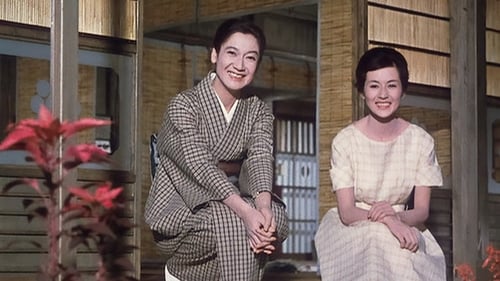
Akiko
La familia Kohayagawa se prepara para casar a la joven Noriko, la hija pequeña, mientras que su hermana Akiko, viuda y con dos hijos, recibe una propuesta de matrimonio de un hombre con una buena posición económica. El viejo patriarca Banpei se comporta, sin embargo, de forma curiosa: decide ir a visitar a su antigua amante, Tsune, actitud que su hija Fumiko le reprocha. El viudo Banpei sufre un repentino ataque pero recobra la salud y su hija renuncia a juzgarle.

Oren Aikawa
In Meiji era Japan a sixth grade boy is smart, likable and confident and owing to his academic success liked by his teacher. Things are not going well at home, however, where his father does not work leaving the mother to toil . With the boy's family having no money he cannot progress his education and has to drop out of school. A neighbour, who is a bookstore owner, offers the family money to allow the boy to continue his schooling, but the father is too proud to accept and rebuffs the offer forcing the boy to work.

Akiko Miwa
Tras la muerte de Miwa, sus mejores amigos deciden hacerse cargo del futuro de su viuda Akiko y de su hija Ayako. Todos creen que la mejor solución es casar a la joven, pero ésta rechaza uno tras otro a todos los candidatos que le presentan; así que deciden casar primero a la viuda.

A skilled country doctor's talents are such that he can even perform operations as difficult and novel as removing a patient's kidney for the first time in Japan. Unfortunately for him, however, his wife's addiction to gambling is of such a magnitude that he is down to selling his underwear to make money. The image sticks and he becomes known as the 'underwear doctor.' On the other hand, his successful surgery's patient is so grateful he himself wants to become a physician.
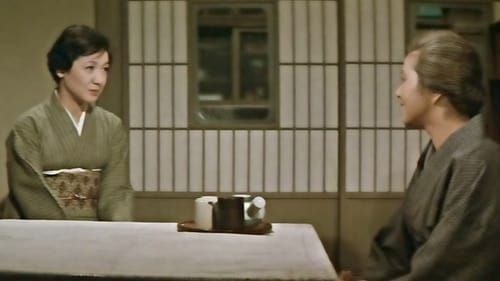
Sanae Soga
En una familia de clase media de Tokio, una de las hijas (Setsuko Hara) ha enviudado joven, y todos los miembros desean que vuelva a casarse. La madre es una anciana viuda que vive en una casa grande del centro de Tokio. Los hijos están deseando vender la casa, pero no saben qué hacer con su madre.
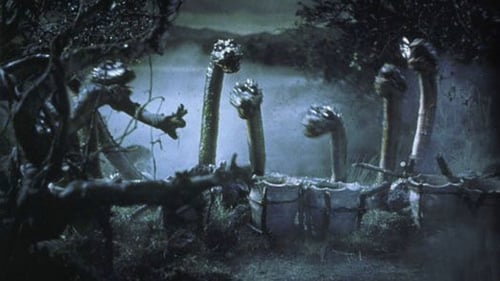
Amaterasu, the Sun Goddess
The legend of the birth of Shintoism. In Fourth Century Japan, the Emperor's son Ouso expects to succeed his father on the throne, but Otomo, the Emperor's vassal, prefers Ouso's stepbrother, and conspires to have Ouso die on a dangerous mission he has contrived. But Ouso prevails in the mission and returns to his father's castle under a new name, Prince Yamato Takeru. Otomo plots to have the Prince sent into even greater danger, but Otomo is unaware that the gods have favored the Prince and the outcome is far from what any of them expected.

Story of a family torn apart when Teiji (Mori), the father, develops intimate feelings for a runaway (Kuga) the family has taken into their home.
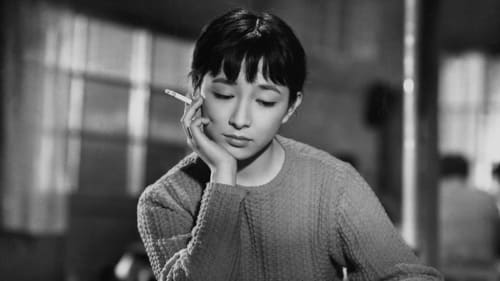
Takako Numata
Dos hermanas viven con su padre: la más joven ha tenido una aventura y se ha quedado embarazada, la mayor ha abandonado a su marido y se ha refugiado con su hijo en la casa paterna. Cuando, de repente, reaparece su madre, a la que creían muerta, su estupor no tendrá límites. (FILMAFFINITY)
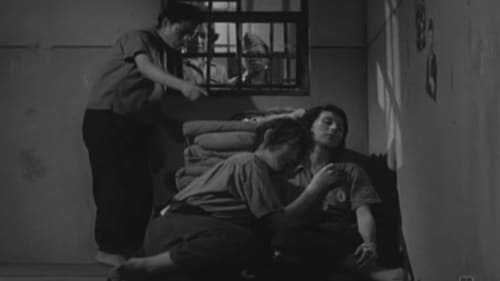
Prison Officer
The woman prison has a cast all with a story of their own and with no dull or routine day. There is an employee who is divorced after her husband had an affair. She loves the jailed criminals and almost sees them as family. One day at a workshop someone faints while working hard to make money because she has a poor boyfriend. Another inmate is knocked up Another is a mother and has her child with her.
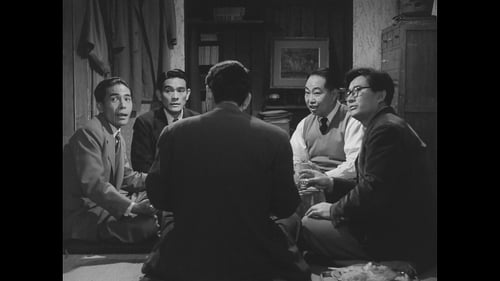
Fumiko Namiki
A husband and wife's pet peeves and minor irritations escalate into major rifts and animosity.

Mom
A little girl who falls into a lake and is saved by a god who then takes her up to the clouds and shows her what the world was like before she was born and what the world would be like if she where never born. While in the clouds she meets her grandparents and a few other people she loved who have passed on.
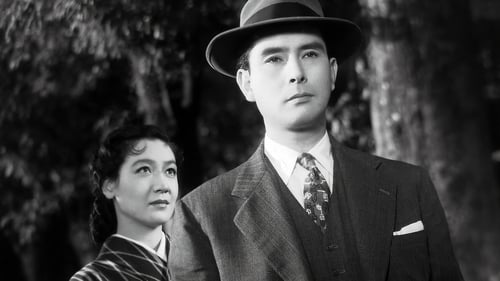
Ogata Kikuko
Shuichi, hijo de Shingo, un próspero hombre de negocios de Tokio, vive con sus padres y su esposa Kikuki en una confortable casa. Por las tardes, se queda a menudo en la capital, bebiendo y divirtiéndose con su querida. Kikuko aguarda pacientemente su regreso a altas horas de la noche. Shingo, hombre sabio y de talante moderno, es consciente de los desenfrenos de su hijo y compadece a la solitaria Kikuko. (FILMAFFINITY)
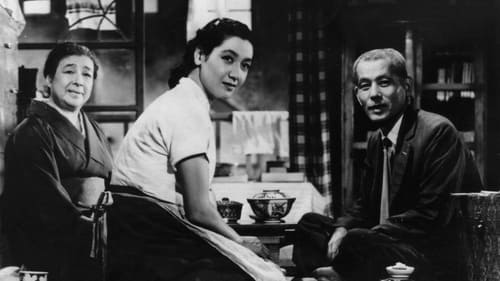
Noriko Hirayama
Una pareja de ancianos viaja a Tokio para visitar a sus hijos, pero ninguno de ellos tiene tiempo para atenderlos, por lo que deciden enviarlos a un balneario. Cuando regresan, la madre pasa una noche en la casa de una nuera, viuda de uno de sus hijos. A diferencia de sus cuñados, Noriko muestra afecto por sus suegros y conforta a la anciana.

Sachiko
A family comprised of a man, woman and their only son is torn apart when the father, who is a doctor with his own clinic, is to go off to war. Soon the wife and the son are left without an update of his status and whether he is alive or not. With the clinic lying dormant the doctor's wife rents the premises to her husband's underling. This is a man who does not accept payment from the poor. The woman, in the meantime, works at a restaurant whose owner being ill has given her additional duties. Her younger sister is an unmarried finance writer who also lives with them. It is both sisters, however, who receive marriage proposals.
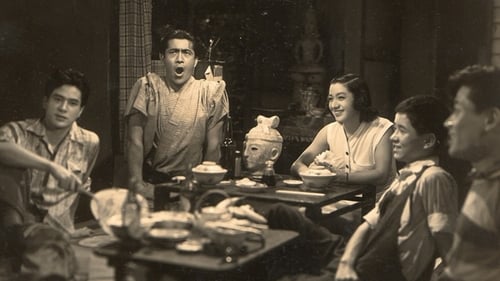
Yuki
Following the Second World War, the lives of various people in a poverty-stricken area of Tokyo are entertwined. Pachinko parlor girls, shoeshine boys, a maker of costume jewelry, and a streetcorner artist all struggle to make their livings and to find happiness in difficult surroundings.

Once an average and seemingly ordinary Tokyo girl, she suddenly finds herself as a TV star owing to her discovery by a casting company, which noticed photographs that her cousin had sent. When another actress falls ill she is given the role instead. Her first film is a success propelling the young actress to popularity, her own fans, money and a house. While everything looks dandy from the outside not all is well within the family however.

Kanae, who broke up with her husband and moved to her uncle's house, met two men when her father, a university professor, collapsed. Michihara, a wealthy man and Miyashita, a youth scholar. Kanae is attracted to Miyashita, but ...
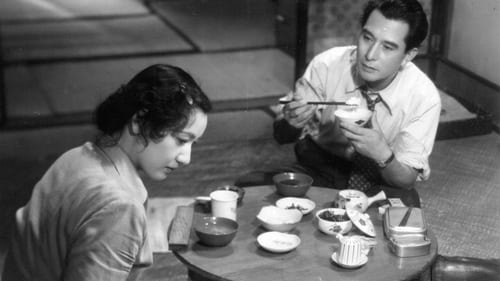
Michiyo Okamoto
Situada poco después de la Segunda Guerra Mundial, El almuerzo cuenta las dificultades matrimoniales entre el salaryman Hatsunosuke y su mujer Michiyo. Se centra en la crisis emocional de una ama de casa aburrida. El tedio de su vida doméstica -consumida por la repetición de labores como cocinar y limpiar- aumenta con la visita de la sobrina de su marido, Satoko. Su llegada y la excesiva atención que le presta su marido, provocan el aumento de la infelicidad de Michiyo, forzada a enfrentarse con su futuro
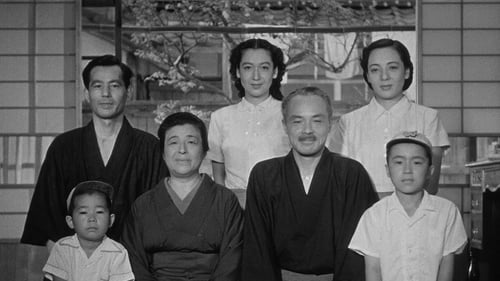
Noriko Mamiya
En el Tokio de la posguerra, los miembros de una familia convencional llevan una vida tranquila y serena. Su única preocupación es la soltería de Noriko, la hija mayor, que ya tiene 28 años. Pero la sociedad está cambiando, y Noriko, que trabaja y se divierte con sus amigas, no siente la menor necesidad de tener un marido. Sin embargo, su hermano considera muy imprudente la actitud independiente de la chica. (FILMAFFINITY)
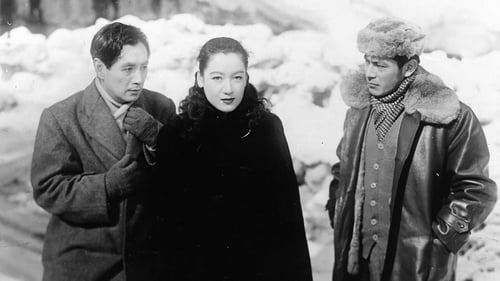
Taeko Nasu
Adaptación de la novela homónima de Dostoievski. Kameda, condenado a muerte por crímenes de guerra, en el último momento se salva de ser fusilado. La conmoción le provoca durante cierto tiempo fuertes ataques epilépticos; pero, al mismo tiempo, también se produce en él una profunda transformación, que algunos llaman "idiotez", pero que no es más que sencillez, bondad y una gran capacidad de amar.

Teruko
Ebihara is a budding novelist entangled in a complicated web of relationships with three women from three different generations: Kazue, a coquettish teenage war orphan who tries to offer herself for money but is instead taken in by Ebihara, Koyabu, a middle-aged woman who has spent much of her life as the kept woman of a wealthy man, and Teruko, the modest daughter of Ebihara's former teacher who comes to rely on him after the death of her father.

A grade school in Tokyo, where students curse and gamble, has a pond on-premises with one particular teacher who is in charge and takes care of it. The pond holds a number of carp, but someone is snatching them. Amidst the student, one lives with his mother in poverty. The mother works at a factory whose owner is a member of the parent-teacher association and asks her son to help her employer's son to help with homework. Her son is not happy spending time doing this. Finally one day the teacher finds out who is stealing the carp when the poor boy finds out and reports it. It is a child who is not attending the school.
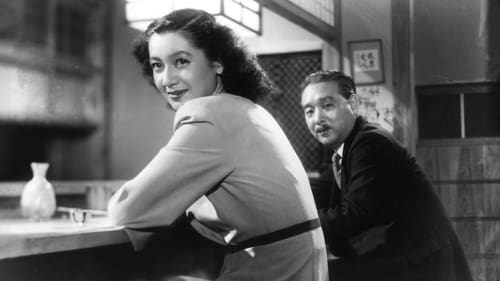
Noriko Somiya
Somiya era un viudo viejo con una hija, Noriko, madura para el matrimonio, pero curiosamente sigue viviendo con su padre. Para hacerla cambiar de manera de pensar, Somiya finje tomar una esposa joven e intentar que su hija se de cuenta de su situación...

Yukiko Shimazaki
Continuation of The Blue Mountains: Part I. Released a week later.

Yukiko Shimazaki
Teacher Yukiko finds herself in opposition to conservative faculty and villagers after defending a student for being in a relationship with a young man from Tokyo.

Yasuko Ikeda
A matchmaker looks to unite a young woman from a wealthy Tokyo family with the humble owner of an auto garage.

La hija mayor de los Takamatsu, Atsuko, viuda, vuelve a la casa paterna porque no congenia con su familia política. Por su parte, la hija menor, Yukiko, está enamorada de un profesor mayor que ella y no duda en salir de excursión con él pese al disgusto de su padre. Todo ello, unido a que Yukiko y Atusko se llevan bastante mal, va a sacudir los cimientos de la familia Takamatsu.
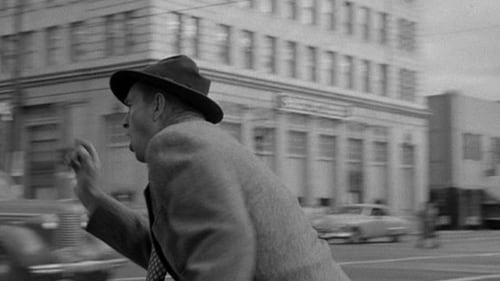
Kuriko Sato
Four unlucky pirates head to a weather tracking station set on a remote island with the intention of holding the weather trackers as hostages and assaulting their next incoming supply ship; but at the station they are told that a serious typhoon is on the way, so the ship will be delayed.

Takako
A young lawyer falls in love with the daughter of his former professor, whom he's hired to tutor his children.
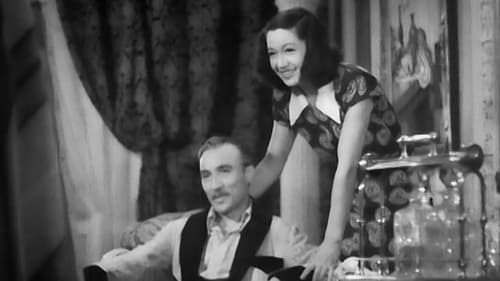
Atsuko Anjo
Tras la Segunda Guerra Mundial y la derrota de Japón, la aristocrática familia Anjo se encuentra arruinada. Para saldar sus deudas deben vender su mansión y deciden celebrar una última fiesta... Uno de los clásicos del cine japonés filmado durante la ocupación americana. Película de tintes sociales realizado por el izquierdista Yoshimura con guión de su cuñado, el luego célebre cineasta Kaneto Shindô. Protagoniza la mítica Setsuko Hara.

Miyako Tomoda
A newly hired daily newspaper writer covering the society beat receives an assignment to cover Tokyo at night by walking and observing it. He gets into the right frame of mind by dressing the part as a vagrant with not a penny to his name. He gets into trouble ending up at the police station slammer overnight. He has no material to write about and, with his assignment unfulfilled, faces a cross editor.
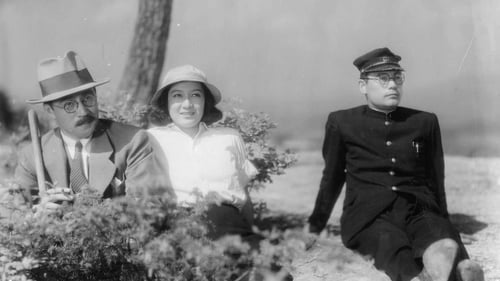
Yukie Yagihara
Yukie, hija de un profesor universitario, se queda conmocionada cuando su padre es expulsado de su cátedra por sus enseñanzas políticas, pero mucho más aún cuando su novio es arrestado y ejecutado bajo la acusación de espionaje.
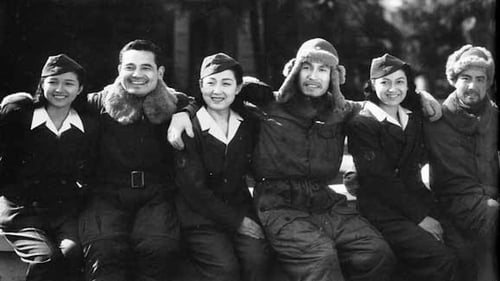
The story of an airport and its air traffic control crew in a remote and northern Japanese town. Three of the air traffic controllers are female with one of them working with her dead fiancé's sister. The engaged man had gone to war and never returned.

It is 1921 and a town has a newspaper which prints urgent bulletins as required. The Washington-based CITES treaty, in which Japan participates, puts a limit on the number of warships any country can possess. As a result, Japan has to decommission a ship to its makers' disappointment. An institute of technology's laboratory designs a new ship. Due to less ships, sailors have to retire and are also disappointed. The laboratory's manager and an admiral are visiting a patient at a hospital and meet coincidentally. The former has a daughter who worries about her father's workload. She asks him to accompany her to a concert. Father has little time, but is convinced for her sake. He is inspired for a ship's design at the performance. The film is inspired by the life of Jo Hiraga.

Kumiko Takagi
Set in wartime at the Yawata Steel Works in Tobata, Yawata, and Kokura cities in Fukuoka Prefecture, the film depicts people taking on the evil blast furnaces that prevent increased production. The film was shot on location at the actual Yawata Steel Works for an extended period of time, and special effects were created using a miniature blast furnace that closely reproduces the actual one.

Young men endure challenging flight training in the Yokaren, a program feeding new pilots into the Army and Navy. By the time of the filming, the pressure of the war had led the government to shorten the training and expand the age range of the recruits. Yokaren was highly selective, and thus an object of great fascination and desire for boys and young men. In this Navy–sponsored film, Setsuko Hara plays the daughter of a family that often entertains recruits on their days off—a surrogate sister to many trainees. Her fragile younger brother aspires to join the program, but is rejected. With perseverance and much support from Hara and their mother, he surmounts his weaknesses and becomes a flier.

Yoshiko
Stalwart soldiers of the Japanese Empire – Japanese and Korean alike – stand in defense of a military outpost threatened by "bandits."

The Opium War is a 1943 black-and-white Japanese film directed by Masahiro Makino. "Ahen senso" in Japan refers to the First Opium War. The story of the film concerns this war.
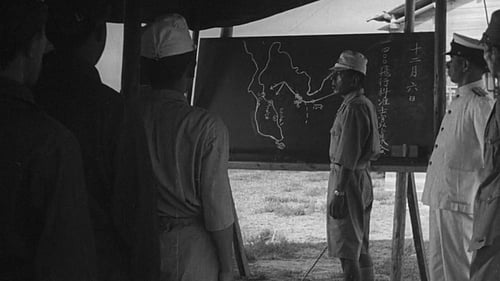
Kikuko
Japanese Navy air cadets train for the attacks on Pearl Harbor and the HMS Prince of Wales.

Set in Qingdao, China, a Japanese company locates an office there and begins work and cooperation with a local Chinese company for business. Many Japanese engineers also move to China, with their families, for the company in order to construct a canal. There are young Chinese resisting the Japanese in this area.

Chizuko
What is marriage? Young couple in match-making wanted to know before they decide. They visited married couples of sisters and brothers. Love comedy in 1942.
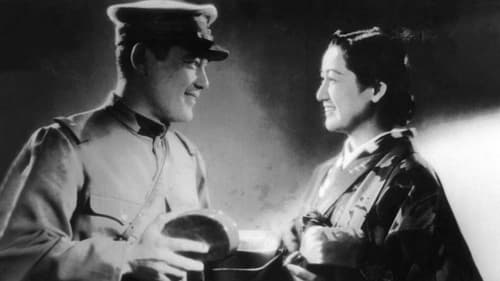
Kuniko
In this semi-documentary, an older locomotive driver is tasked with training younger ones and is currently training two in particular. The old man is finding the task overwhelming as it is hard work with practical lessons and classroom components. His wife has died, but he has three daughters with the oldest taking care of her younger siblings.

Koto Hime
When Sentarô’s father is killed by a drunken samurai, Sentarô avenges him. His deed puts him on the run and leaves his sister behind. While running from both the authorities and the assassins, Sentarô meets with the beautiful travelling-actress Oshima who takes him under her protection.

Yoshiko
Twenty-year-old Yoshiko (Setsuko Hara) and her younger sister Asako (Yōko Yaguchi) struggle to accept changes in their home during the preparations of their widowed father's wedding to his chosen bride, Maki Tsuneko (Sadako Sawamura), who's anxious about her conduct as the bride.

Showa Kinema actress

Part two of two.

Part one of two.

君塚節子

Mingzhu - Chinese girl
This film attempts to reconstruct the tension of the Battle of Shanghai through an episode in an understated way, introducting its story in a documentary mode. In the film story, Japan's marine regiment protects Japanese residents and Chinese refugees-women and young children-from rampant street fighting, Shanhai Rikusentai unsparingly uses its first eight minutes for an official-mannered self-justification of the war. From the viewpoint of explaining Japan's military operation,the narration refers to the city s spatial division in sync with maps on screen.

A priest in Hokkaido adopts a blind orphan girl, and as she grows up he finds himself falling in love with her.

Japanese adaptation of LES MISERABLES. The last film of director Itami took inspiration from Les Miserables. Transpiring during the Southwestern War of 1877 in Japan, which was the last civil war in the country, a criminal escapes prison only to be found by a monk. The criminal decides to turn a new leaf based on their conversation and goes on to become a town's mayor. He hears news of a mistaken arrest and identity. The revelation of truth is the start of a series of miseries.

A man attacks the shogun, but does not succeed in his assassination attempt. He flees to the mountains and hides in a shed. There he finds an old man and a girl. The latter is the daughter of Shogun's former wife and also has revenge on her mind. The former is also connected to the castle. Separately a girl lives at the shogun's castle and believes in god.

Keiko
The prewar film Haha no kyoku (Mother's Melody, 1937) is known for its place in Japanese film history as one of the top three melodramas as well as for its authorship: Yamamoto Satsuo is an auteur not usually associated with filming melodramas. Yamamoto made the film right after he moved, along with his mentor Naruse Mikio, to the Toho film company. A number of subsequent postwar mother's films adopted some of its essences, making it a genre-defining moment in Japanese cinema. This great melodrama is atypical of Yamamoto's output, much of which deals with political corruption and inequities within social institutions and offers a strong anti-establishment appeal.

Misuko Yamato
At the invitation of the Japanese Ministry of Education, the former “mountain filmer” Fanck directed this “cultural feature film” with Japanese actors in Japan, making this the first, German-Japanese co-production. The young Japanese man Teruo gets caught up in a conflict between tradition and modernism, when he returns to Japan from Germany after having spent a number of years there studying. Now, he is supposed to marry Mitsuko, the daughter of his adoptive father, to whom Teruo has long been promised. But Teruo, who has gotten to know the freedoms of the western world, would rather marry the woman he loves and behaves brusquely to Mitsuko.

Two brothers run a factory canning crabs. The elder brother Kotaro is righteous and insists on honesty. The younger brother is fixated on money. They are polar opposites. When a boat sails out looking for crab and does not return one day the brothers begin to argue over how to run their facility. They had just received a large order from a foreign country and had obtained a loan from a lender that needed to be repaid.
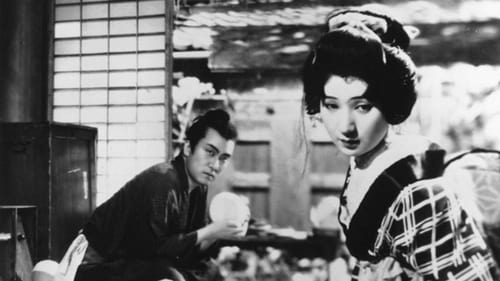
Onami
A boy steals a knife from an old samurai, unaware of its value, setting off a strange chain of events.

Student
The film centres around junior high school students. They are members of the school's baseball team. They are very good. Izawa's father asks him to stop playing prior to an important game. Hayasaki health deteriorates at this time and he becomes absent. The team decides to speak to Izawa's father to plead their case and ask for the return of their team member.

